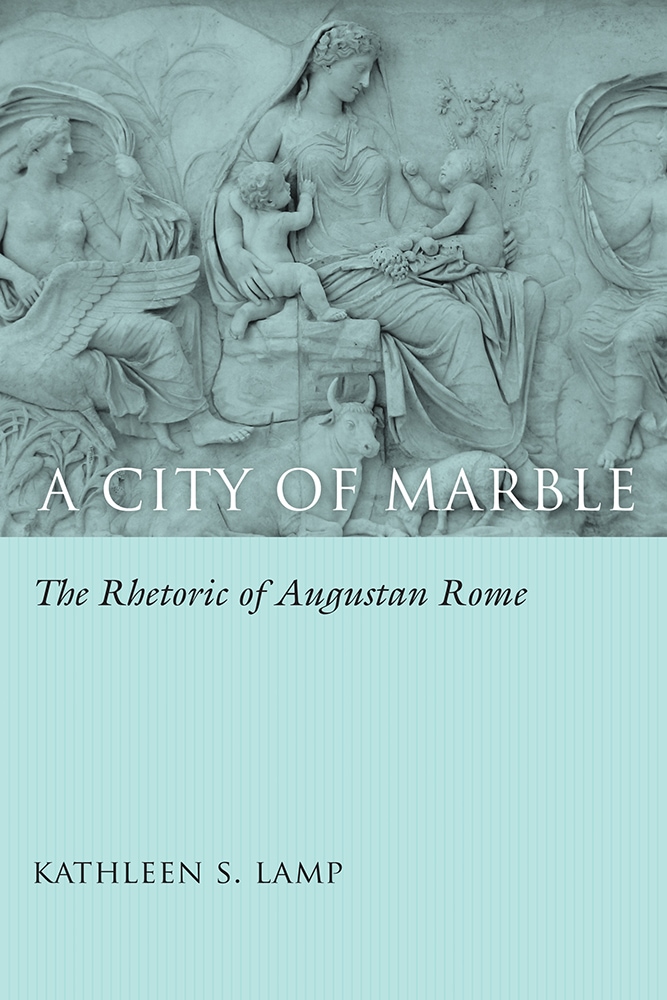Black History Month Sale: 40% off all books, plus FREE SHIPPING on all U.S. orders over $50 | Use code JBHM26

Size: 6 x 9
Pages: 216
Illustrations:
Kathleen S. Lamp
The inclusion of this book in the Open Carolina collection is made possible by the generous funding of
"Innovative, well written, and insightful, A City of Marble: The Rhetoric of Augustan Rome is a "must-read" recommendation!"—Richard Leo Enos, Texas Christian University, Rhetoric Review
". . . Lamp does a superlative job of classical outreach. She brings antiquity in a very accessible package to non-specialists . . . well illustrated and clearly written."—The Journal of Roman Studies
"Lamp's insightful analyses of material culture in the Augustan era read through a rhetorical lens will be much welcomed in our expanding field. But the greater power of City of Marble lies in Lamp's provocative argument for reassessing the rhetorical achievement of the first emperor himself: a potentially controversial approach of interest to any student of communication between rulers and the ruled."—Susan C. Jarratt, chair of Comparative Literature and of Women's Studies, University of California, Irvine
"Through groundbreaking analyses of Augustan rhetoric in such media as monumental art (the Ara Pacis), architectural spaces (the Forum of Augustus), and coins — and 'responses' to that rhetoric in popular art and parody — Kathleen Lamp's A City of Marble dispels the image of a decline of rhetoric under the principate and makes a strong case for 'renaissance.'"—Jeffrey Walker, Professor and Chair, Rhetoric and Writing, University of Texas at Austin
"As Kathleen S. Lamp reveals, Augustus and his contemporaries not only transformed Rome from 'brick to marble' but rhetoric as well. Challenging conventional views of rhetoric's decline as Rome moved from Republic to Empire, A City of Marble: The Rhetoric of Augustan Rome provocatively argues that the cultural and building programs of the Principate are best understood as conscious manifestations of visual and material rhetoric. Innovative, well written, and insightful, A City of Marble is a 'must read' recommendation!"—Richard Leo Enos, Piper Professor, Lillian Radford Chair of Rhetoric and Composition, Texas Christian University
Copyright 2026
Website By Morweb.org